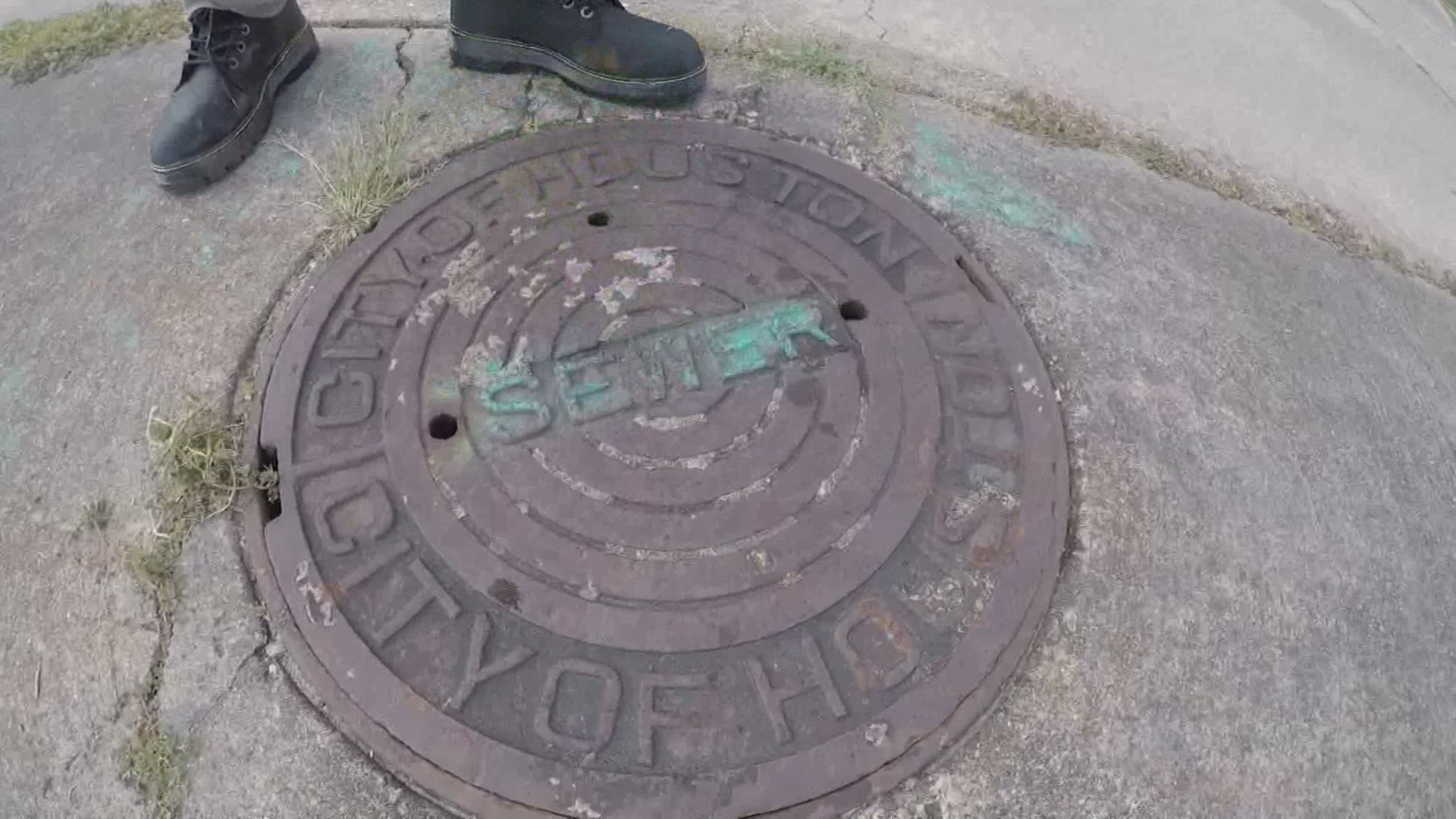HOUSTON — COVID-19 numbers are down across the board. That includes the number of people being getting tested.
These days, wastewater testing is the best indicator of the spread of COVID-19 in Houston. It’s because when someone’s sick, they shed the virus when they go to the restroom.
Variants, like the delta variant, continue to be a threat to the community, so the Houston Health Department goes to more than 100 locations to pull wastewater samples every week.
“We’re currently doing 39 wastewater treatment plants, nursing homes, shelters,” said Kendra Davis, with HHD.
During the school year, crews also pull samples from sewers near 60 school campuses.
The bottles of wastewater are delivered to a lab at Rice University where it is concentrated, filtered, then genomic material is extracted. It’s also analyzed by the Baylor College of Medicine.
“When we sequence it, we can get information about not just how much virus is there, but what virus is there,” said Lauren Stadler, assistant professor of civil and environmental engineering at Rice University.
Stadler says wastewater testing has been used in other parts of the world for disease monitoring and illicit drug use. However, the COVID-19 pandemic is the first time the technique has been used in Houston.
Wastewater testing has shown the highly contagious delta variant is in Houston and has been since April.
“I think that this point we have low levels of the delta variant in Houston as well as some hospitalizations,” said Dr. Loren Hopkins with the Houston Health Department.
Some health officials fear those numbers will rise this summer. Wastewater testing is how the health department will identify an outbreak early on.

